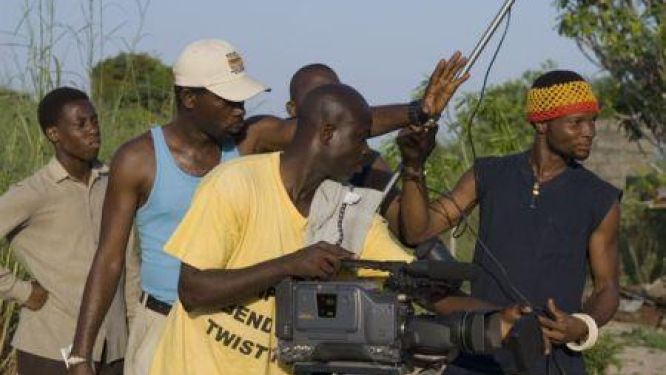
• IFC teams up with AfDB and Nigeria’s EbonyLife to assess a new fund for African cinema
• Sector could grow to $20 bln annually and create 20 mln jobs with better funding and regulation
• Nollywood and other industries remain underfinanced and vulnerable to piracy losses
African film producers currently face limited and difficult-to-access financing, obstructing the growth of the continent’s cinema. Consequently, the IFC is considering the creation of a Pan-African investment vehicle focused on the African film sector.
The International Finance Corporation (IFC) said on Thursday, July 3, it is working with the African Development Bank (AfDB) and Nigeria’s EbonyLife Media to study the feasibility of launching a pan-African investment vehicle targeting the continent’s film sector.
The initiative aims to unlock fresh private and institutional capital to help African producers create and distribute stories for global audiences, IFC said.
EbonyLife Media, led by Mo Abudu, specializes in producing films and series centered on African narratives. The company has several agreements with international studios such as Sony Pictures Television, Starz, Macro Film Studios, Westbrook Studios, and 22 Summers (co-founded by Idris Elba). It plays a strategic role in this project, bringing its local expertise and global partnerships to the table.
“This has taken time. We are defining and building an ecosystem designed to unlock new possibilities and provide critical capital for African filmmakers,” said Mo Abudu, CEO of EbonyLife.
 Mo Abudu
Mo Abudu
According to UNESCO, Africa’s film industry generates about $5 billion a year and employs around 5 million people. But with stronger regulation and investment, it could reach $20 billion and create 20 million jobs.
Despite steady growth, the sector faces chronic obstacles including limited financing, weak intellectual property protection and high piracy losses – estimated to wipe out up to 50% of revenues. Other challenges include a shortage of specialized technical skills, underdeveloped infrastructure, and fragmented regulatory frameworks.
The project builds on IFC’s broader strategy to support Africa’s creative industries. In 2023, the IFC signed an agreement with Sony Group to explore investments in creative startups spanning film, gaming, music and cultural technology.
Africa’s creative industries currently generate an estimated $4.2 billion annually, accounting for less than 1% of the continent’s GDP, according to IFC.
Nollywood, the world’s second-largest film industry by volume, produces roughly 2,500 movies each year and contributes 2.2% of Nigeria’s GDP. Other countries, including South Africa, Kenya, Senegal and Ghana, are also expanding their audiovisual sectors through public and private partnerships.











Comments